At the end of 2020, Standard Chartered made a big announcement. By 2023, the bank said that 90% of its 85,000 staff around the world would be given “flexi-working” arrangements, following in the footsteps of HSBC, Twitter, Barclays, and other large businesses who are starting to think that maybe the office isn’t all it’s cracked up to be.

And then just last month, the pendulum swung the other way with 60% of London workers reported to want to return to the office, a number that doubled in just two months.
As retailers and hospitality groups reopen, most leaders are putting into motion plans for how, when and where their employees get their jobs done ahead of the UK Government June deadline. For shared workspace providers like Huckletree who can ride the wave of uncertainty by offering flexibility on demand, our path may be a little clearer; but the bigger question we are now working on trying to solve for companies is how to help them reuse, rethink and rebuild their ideal of the corporate HQ. And the answer is probably the most exciting thing I’ve seen in my 8 years of Huckletree.
HQs have been part of our makeup for almost 300 years. In 1726, the UK’s first ever dedicated office was built in London, to handle the Royal Navy’s paperwork. But it wasn’t until the 1900s, when US architect Frank Lloyd Wright introduced the idea of open plan working to the world, that the office as we know it today came into shape.
Over time, the standalone HQ became synonymous with success; a way for companies to literally put themselves on the map and offer a visual representation of their size and power.
As Rita Gunther McGrath, a corporate strategy expert at Columbia Business School told The Atlantic : “The buildings symbolise what the company is going to achieve.”
But now, as employees value flexibility in where and how they work, businesses need help in rethinking the role of the HQ in that flexibility equation. We didn’t spend a year isolated and disconnected from our colleagues and customers to go back into a quiet office block. The symbol of success is not in the address you have, but in the principles that make up a workspace. Now, who we spend time with, and the total immersive in-space experience, need far more attention and conscious design than ever before.
Inside our Huckletree workspaces, we believe in building an ecosystem, not building desks.
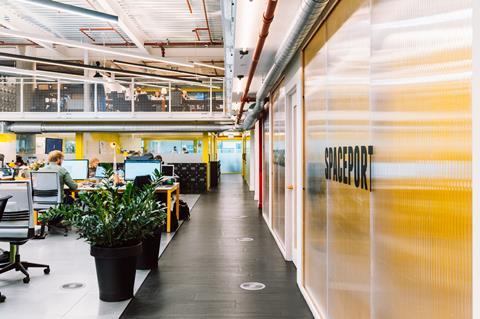
Our 200,000 sqft of workspaces in the UK and Ireland are themed and curated by sector or industry, which means that our member businesses are working alongside the most relevant brands and companies that they can partner with, learn from, or hire from. We have always believed that these curated ecosystems are where the real value happens.
In our GovTech hub, PUBLIC Hall in Westminster you’ll find the Center for Data Ethics and Innovation working alongside Insurtech app pioneers and leading venture firm PUBLIC, whereas in our Venture hub for VC funds and investors in Soho, you’ll find pitches, roundtables and dealflow conversations with exciting portfolio companies. Last year we made 450 introductions across our member businesses, more than any year before, and that was under the constraints of the pandemic.
Yet we can’t build innovation ecosystems alone on zoom. And based on the increase in new enquiries and the number of new businesses who have joined us since the start of 2021, we’re not alone in that thinking. Mature scale-ups including Depop, MuscleFood and tech unicorns Personio and Starling Bank have joined Huckletree this past year, and moved fast on their return-to-work plans. And at the same time, we’ve had management consulting firms, creative agencies and heritage brands such as Colart change tact and opt for a shared model by joining our community over returning to their HQ. Why? Employees are craving spaces and those spaces have to be worth an employee’s commute, their effort and make commercial sense to the business. That means looking beyond standard perks and looking at what a community like ours can do for their employee productivity and wellbeing including mentoring, workshops, careers accelerators, wellness packages and innovation services.
Earlier this year we filled 100% of 20,000 sq ft of purpose-built space in WestWorks, White City Place with three of our member businesses looking for the trifecta of privacy, flexibility and ecosystem. No longer do you need to choose one.
I believe now more than ever that the physical nature of the office space still plays an incredibly important role in how we give people a sense of purpose, belonging and safety, how we facilitate connections, how we hit business results, and how we build a flourishing and active network. The two most exciting parts of our business today are our Real Estate and Growth and Innovation teams, who are working to deliver on our vision of building the home of innovation and impact for every industry.
Whether it’s a fintech hub in Dublin or a new health-tech campus in London, we are looking to build new partnerships with landlords and developers to reimagine buildings that have been left dormant, inject new life into them and keep these ecosystems growing. This is the new way to put companies on the map, by letting them subscribe to something bigger without the upfront risk, whilst letting landlords get in on the flexibility game quickly without waiting to see how things pan out.
Gabriela Hersham, CEO and Co-founder of Huckletree






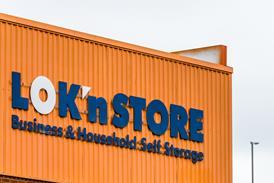
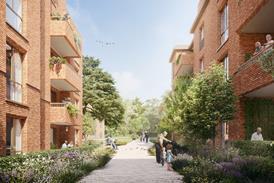
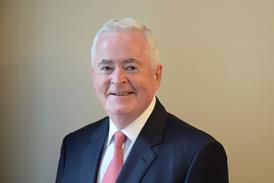
















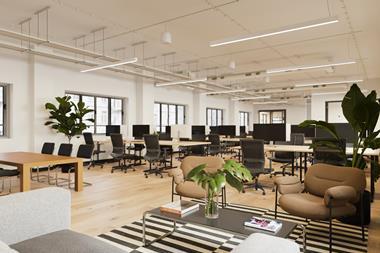
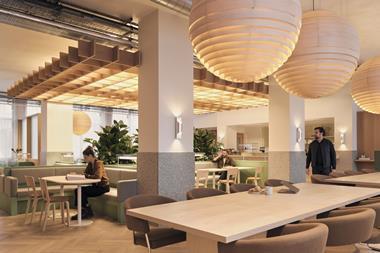


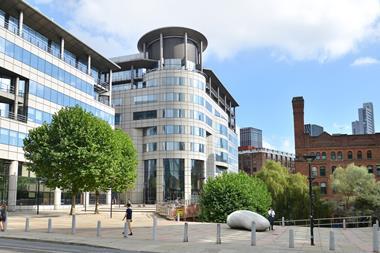
No comments yet